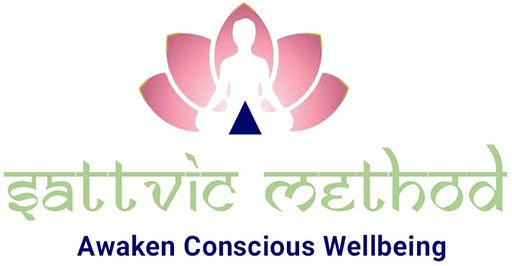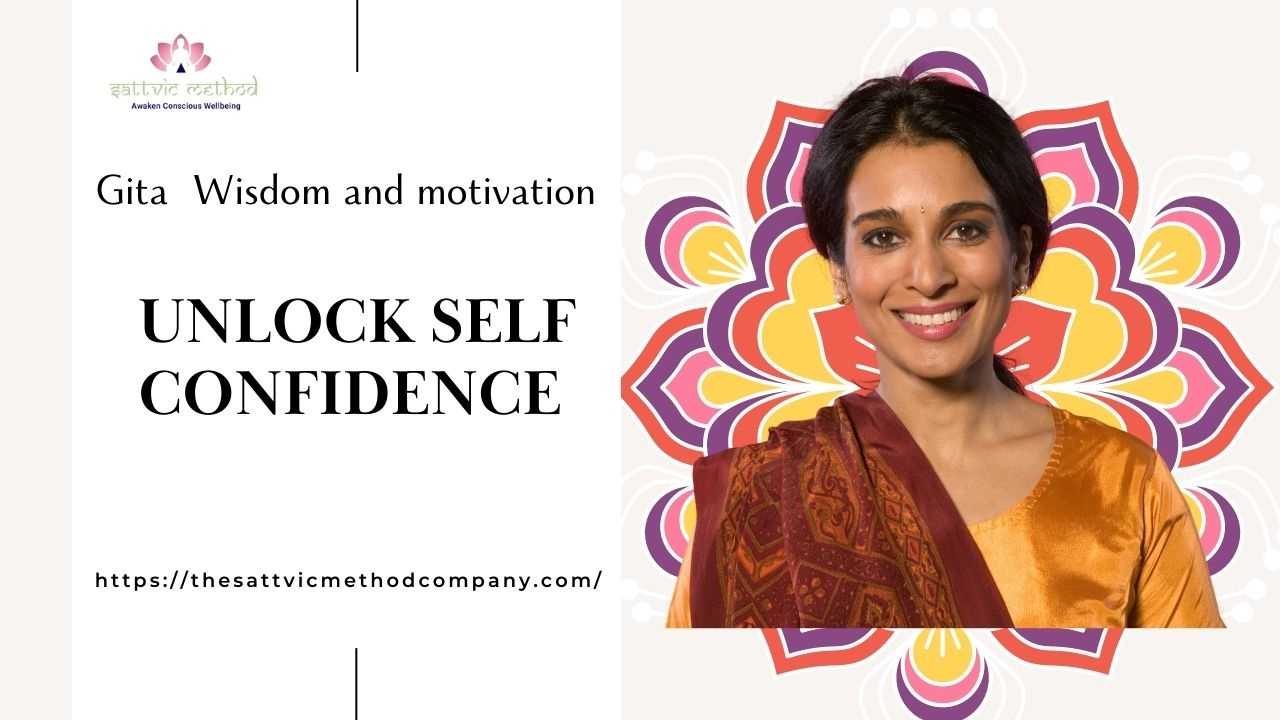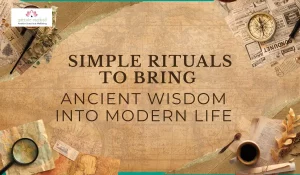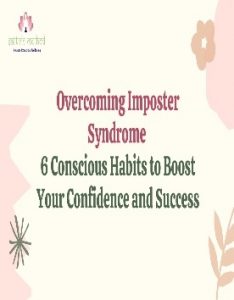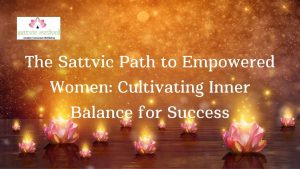II Shivoham II
Every woman needs self-confidence to win or to persist until she wins. The power of the Gita is in the words of the Master, Sri Krishna, to instill confidence, fill it with divine energy, and provide enlightenment. In the Divine Khadgamala Stotram, fame, fortune, beautiful speech, memory, intelligence, faithfulness, and patience are venerated as seven devis, the divine feminine.
In the Gita, Sri Krishna too celebrates these traits and says these are the epitome of feminine consciousness and femininity. So, the Gita and the teachings of the Gita are very much relevant and valuable to the women. In fact, it can be considered as one of the best empowerment strategies for women as it teaches women all areas of Yoga that enables the experience of enlightenment.
In the Gita, Sri Krishna radiates the energy that provides us, all those who meditate on the truth, to directly experience and transform ourselves. This direct experience is the cornerstone of the emerging self-confidence. Self-confidence is a powerful trait that enables and empowers women to embrace their true potential, overcome obstacles, and thrive in all aspects of life. Bhagavad Gita, an ancient Hindu scripture, created from a divine source provides some deep answers to women’s questions and challenges. Immersion and participating in a meditation circle on Bhagavad Gita can open new perspectives and lead to transformative experiences for women. Through participation and processing, women can enhance their self-confidence and foster personal growth. In this blog post, we will explore how women can gain self-confidence through studying the Gita and how joining a meditation circle can further support their journey of empowerment.
**Deeper Understanding the Teachings of the Bhagavad Gita**
By studying the teachings and mediating on the practical, timeless wisdom and guidance from the Bhagavad Gita, women can gain valuable insights into self-awareness, self-acceptance, and self-realization. The Gita emphasizes that every individual possesses unique strengths and is capable of achieving greatness. Through its teachings, women learn to recognize their inherent worth, fostering a deep sense of self-confidence that transcends societal expectations.
The teachings of Bhagavad Gita are subtle. To explore deeper meanings and apply it in their daily life, women need to find safe spaces where they can share their experience and discuss their understandings. Spaces which allow open discussions among women regarding spiritual gems contained in the Gita are important because it provides security during their vulnerable learning stages and supports them as they learn to apply it in their everyday life. The brain grasps the deeper spiritual truths by meditating on the teachings from the Bhagavad Gita, This meditation can expand consciousness and form a bridge establishing a connection with the universal consciousness or the divine source. By incorporating deeper understanding of the Bhagavad Gita into their lives, women can embark on a transformative journey of their self-discovery. Here are a few reasons why women may find it difficult to understand and apply the teachings of the Gita in their daily lives:
*Cultural and Social Conditioning: All around the women’s roles and expectations in society can differ across cultures, and even among the rural and urban communities. Traditional gender roles, societal norms, and cultural expectations may create barriers for women to fully comprehend and apply the teachings of the Gita. These constraints can limit their exposure to Bhagavad Gita meditation circles and impede their ability to integrate the teachings into their daily lives.
*Lack of Representation and Accessibility: Historically, there has been a gender bias in sharing the spiritual texts and teachings by and for women even when they have been predominantly interpreted and disseminated by male scholars and spiritual leaders. This lack of representation can make it challenging for women to find relatable interpretations and perspectives that resonate with their lived experiences. Limited accessibility to translations, commentaries, and teachings specifically tailored for women can also hinder their engagement with the Gita. Our free meditation circle for women on Bhagavad Gita fills this gap and is available online.
*Time Constraints and Multiple Responsibilities: In most countries around the world, women often juggle multiple roles and responsibilities, such as care giving, household chores, professional commitments, and societal expectations. This often leaves them with limited time and mental energy for studying and reflecting upon complex spiritual texts like the Bhagavad Gita. The demands of daily life may make it difficult for women to dedicate sufficient time and attention to understand and apply the teachings in a meaningful way.
*Language and Cultural Barriers: The Bhagavad Gita is composed in the divine Sanskrit, an ancient Indian language. Translations may not always capture the nuances, spiritual meanings, and depth of the original text, leading to potential misunderstandings. The gems in Bhagavad Gita are universally applicable to women of all cultures and traditions. Yet, some cultural references and metaphors within the Gita may require foundational knowledge of Hinduism that may not be familiar to all women, especially those from different cultural backgrounds.
*Personal Relevance and Application: Many women are not encouraged to think, act, and apply the teachings independently. This might come in the way of understanding and applying the teachings of the Gita requires introspection and personal reflection. Women may struggle with relating the teachings to their unique life experiences and challenges. Without the ability to connect the teachings to their daily lives, it can be challenging for women to translate the wisdom of the Gita into practical actions and decisions.
*Lack of Mentors: During the earlier stages of developing a deeper understanding of the Bhagavad Gita, it is critical to have a supportive environment and community to develop deeper understanding of the spiritual teachings. Immediate access to like-minded individuals or mentors who can provide guidance and support can impede their progress in comprehending and integrating the teachings of the Gita.
**Empowering Beliefs and Mindset Shifts**
The Bhagavad Gita is the most life-positive system available for women today. Studying the Gita introduces women to the empowering beliefs and mindset shifts that support the flowering of their self-confidence. In consciousness science it is well known that we attract what we believe. Having empowering beliefs allows us to experience bigger breakthroughs in our life. The Gita teaches that individuals are not defined by external factors such as gender, social roles, or past mistakes. In fact, we are not individuals; we are parts of a collective consciousness! By internalizing these teachings, women can shed limiting beliefs and embrace a positive self-image. They learn to trust their abilities, make empowered choices, and approach challenges with resilience and determination.
The Bhagavad Gita teaches us that true strength lies within. It becomes a part of our thoughts, our speech, and our actions. Through understanding and internalizing the powerful cognitions presented in the verses, women can learn to tap into their inner reservoir of courage, resilience, and determination. The Gita’s emphasis on self-awareness and self-empowerment encourages women to recognize their inherent strengths and trust in their intuitions and abilities.
As they go about their tasks, women face a multitude of challenges everyday. By meditating and applying the teachings of the Bhagavad Gita women can develop resilience, thus enabling them to navigate life’s challenges with strength and inner fortitude. Here’s how meditation on the Gita can support the development of expanded mindset by:
*Cultivating Inner Strength: Regular meditation on the Bhagavad Gita allows women to learn to quiet the mind, deepen concentration, and access a state of inner peace. This deep inner connection provides a stable foundation from which they can draw strength during difficult times, empowering them to face challenges with courage and determination.
*Understanding Impermanence and Change: The Bhagavad Gita emphasizes the transient nature of life and the inevitability of change. Through meditation, women develop an understanding of the impermanence of external circumstances and gain a broader perspective on life’s ups and downs. This realization helps them cultivate resilience by accepting change and adapting to new situations with grace and flexibility.
*Embracing the Power of Detachment: Meditation on the Gita encourages women to practice detachment from outcomes and to let go of attachment to the fruits of their actions. This means women can do their best and be prepared to do more if needed, there is no expectation of success. By cultivating a sense of non-attachment, enables women to develop resilience by embracing a mindset that is not dependent on external validation or specific results. This understanding allows them to bounce back from setbacks, failures, or unexpected events, and maintain an inner equilibrium amidst challenges.
*Finding Strength in Adversity: The Bhagavad Gita teaches that challenges are an inherent part of life’s journey and that they offer opportunities for growth and self-discovery. Through meditation on the strengths of Bhagavad Gita, women develop the ability to view adversity as a stepping stone rather than an obstacle. They learn to see challenges as catalysts for inner transformation and resilience-building, allowing them to navigate difficult situations with a positive mindset and unwavering determination.
*Connecting with Divine Guidance: Meditation on the Bhagavad Gita provides a pathway for women to connect with the divine and seek guidance from a higher power. By cultivating a deep sense of trust in the divine order, women can develop resilience by surrendering their worries and fears. This connection with the divine source offers solace, strength, and the assurance that they are never alone in their journey. It allows them to tap into a source of wisdom and guidance that helps them navigate challenges with resilience and grace.
*Practicing Self-Compassion and Self-Care: Resilience is also nurtured through self-compassion and self-care. The Bhagavad Gita encourages individuals to take care of their physical, mental, and emotional well-being. By incorporating self-care practices, such as meditation, into their daily routine, women can replenish their energy, reduce stress, and cultivate a resilient mindset. Through self-compassion, they learn to be gentle with themselves during challenging times, fostering resilience and the ability to bounce back.
**The Power of Meditation Circles**
Joining a meditation circle provides women with a supportive community of like-minded individuals who share a common interest in personal growth and self-discovery. Within this circle, women can find encouragement, understanding, and inspiration. Through group meditation sessions, they experience a collective energy that amplifies their individual practice. This supportive environment nurtures their self-confidence, creating a space for personal transformation and empowerment.
**Meditation Circles for Bhagavad Gita: Recognizing these limitations, Sattvic Method Company offers free online weekly Meditation Circle on Bhagavad Gita. These sessions offer expanded inclusivity by providing accessible online links that women can easily join from their cell phone. These sessions are attended by women from all over the world, encouraging diverse interpretations, and creating a supportive community. The purpose of creating this community is to provide an environment that acknowledges and supports the need for women’s spiritual growth, help women overcome the usual difficulties and empower them to take action by applying the teachings of the Gita.
By the regular practice of inner reflection, alignment with higher values, connection with universal consciousness, seeking guidance from within, and embracing detachment and surrender can help women find a sense of direction that resonates with their true selves. All these help women to live with intention, meaning, and fulfillment as they navigate their unique life’s journey.
Understanding the teaching of the Bhagavad Gita allows one to experience the benefits of living in alignment with higher values and principles. During meditation, women can contemplate these teachings and reflect on how they can apply them in their own lives. This introspection helps them connect with their inner compass and discern what truly matters to them. By aligning their actions with their core values, women find a sense of purpose that guides their choices and actions.
As women deepen their meditation practice, they may experience a sense of interconnectedness with all beings and the world around them. This expanded awareness allows them to see how their unique talents, skills, and passions can contribute to the greater good. By tapping into this universal consciousness, women find purpose in their ability to make a positive impact on others and the world.
Participating in a women’s meditation circle dedicated to the Bhagavad Gita provides a nurturing and supportive environment for personal growth. Such circles offer a space for women to connect with like-minded individuals, share experiences, and gain insights from others’ journeys. Engaging in guided meditations inspired by the Gita, discussing spiritual topics, and supporting each other’s progress can greatly enhance self-confidence.
Here’s how meditation on the teachings of the Gita can support women on their quest:
*Inner Reflection and Self-Inquiry: Meditation enables women to enter a state of stillness and introspection, providing an opportunity for deep inner reflection. By focusing on the teachings of the Bhagavad Gita during meditation, women can inquire into their true desires, values, and aspirations. Through this process of self-inquiry, they can gain clarity about their purpose and uncover the direction that resonates with their authentic selves.
*Alignment with Higher Values: The Bhagavad Gita emphasizes the importance of living in alignment with higher values and principles. During meditation, women can contemplate these teachings and reflect on how they can apply them in their own lives. This introspection helps them connect with their inner compass and discern what truly matters to them. By aligning their actions with their core values, women find a sense of purpose that guides their choices and actions.
*Embracing Detachment and Surrender: The Bhagavad Gita encourages women to contemplate and practice letting go of attachments, expectations, and the need for external validation. This process of surrender allows them to release the pressure of finding a predefined purpose and instead trust that their journey will unfold naturally. By surrendering to the divine flow, women open themselves to new possibilities and allow their purpose and direction to reveal themselves organically.
*Affirming Positive Beliefs: During Bhagavad Gita meditation, women can use affirmations or mantras derived from the scripture to cultivate positive beliefs about themselves. By repeating affirmations such as “I am worthy,” “I trust in my abilities,” or “I am capable,” women can reprogram their subconscious mind, gradually replacing self-doubt with empowering beliefs. Regular practice helps these positive affirmations to become deeply ingrained, boosting self-confidence and diminishing self-doubt.
**Embracing Inner Strength and Resilience**
The Bhagavad Gita, often referred to as the “Song of the Divine,” provides profound teachings that can guide women on a path toward embracing their inner strength. Here are some key aspects of the Gita that empower women to tap into their inner reservoir of courage, resilience, and determination:
*Self-Awareness and Self-Reflection: The Bhagavad Gita emphasizes the importance of self-awareness and introspection. It encourages individuals, including women, to delve deep into their own thoughts, emotions, and beliefs. By reflecting on their experiences and understanding their true nature, women can gain a deeper sense of self-awareness. This self-awareness serves as the foundation for recognizing their inherent strengths and unleashing their potential.
*Realizing the Divine Within: The Gita teaches that every living being possesses a divine essence within. It emphasizes that the true self is eternal and divine, transcending gender, social roles, and external appearances. This realization allows women to embrace their intrinsic worth, recognizing that they are a manifestation of the divine. Such awareness nurtures a sense of inner strength and self-confidence, knowing that their value is not dependent on external validation or societal expectations.
*Conquering the Inner Life: The Gita portrays life as a continuous challenge between the worlds we have created within and around ourselves. Women often encounter various internal conflicts, whether it be self-doubt, fear, or limiting beliefs. Through the Gita, women gain insights into conquering these inner battles by fostering qualities such as determination, perseverance, and self-discipline. They learn to align their thoughts, emotions, and actions with their higher self, empowering them to overcome obstacles and embrace their inner strength.
*Yoga of Action: Although the Gita presents several types of Yoga, the concept of “Karma Yoga” or the “Yoga of Action” is the most talked about. It teaches that one can find fulfillment and inner strength by dedicating the fruits of actions to a higher purpose. This teaching resonates with women who play multiple roles and juggle various responsibilities. By understanding that their actions can be an offering to the divine, women can find a sense of purpose and meaning in their daily lives. This realization ignites a profound sense of inner strength as they navigate challenges with a purpose-driven mindset.
*Seek Support and Guidance: The Gita encourages seeking the guidance of enlightened teachers and like-minded individuals on the spiritual path. Women can find strength and inspiration by connecting with mentors, joining study groups, or participating in meditation circles. By surrounding themselves with a supportive community, women can share experiences, gain insights, and find encouragement to embrace their inner strength.
Many women face a sense of uncertainty and confusion about their life’s purpose. The Bhagavad Gita offers guidance in discovering one’s true calling and aligning actions with a higher purpose. By studying the Gita, women can gain clarity, set meaningful goals, and develop the confidence to pursue their passions with a sense of purpose and direction.
Sign up for free online Bhagavad Gita Meditation Circle for Women
**Conclusion**
Studying the Bhagavad Gita and participating in a meditation circle are transformative practices that empower women to gain self-confidence and embrace their true potential
Studying the Bhagavad Gita and participating in a women’s meditation circle can be transformative for women seeking to cultivate self-confidence. The Gita’s teachings empower women to embrace their inner strength, overcome self-doubt, find purpose, and develop resilience. By engaging in a supportive community, women can enhance their understanding, share insights, and find solace in their spiritual journey. Let us embrace the wisdom of the Bhagavad Gita and the power of meditation circles as we empower ourselves and each other on the path to self-confidence.
Remember, women are strong, capable, and worthy. The journey to self-confidence begins within.
